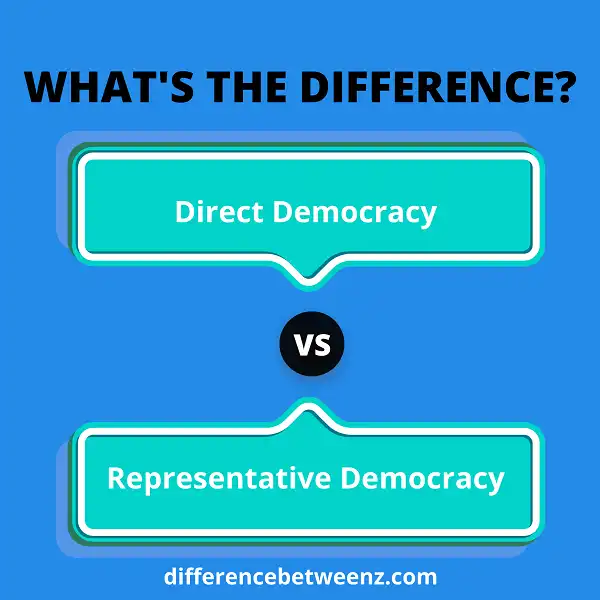What is the difference between direct democracy and representative democracy? This question has been debated for years by political scientists and students of government. The two systems of democracy are quite different, with each having its own advantages and disadvantages. Let’s take a closer look at both types of democracies to see which one is right for you.
What is Direct Democracy?
Direct democracy is a system of government in which the people have a direct say in the decisions that affect them. This can take the form of referendums, in which the public is directly consulted on a particular issue, or it can involve citizens taking part in the law-making process through initiatives and recall elections. Direct democracy allows people to have a greater impact on the decisions that affect their lives, and it has been used to pass some groundbreaking laws, such as environmental protection measures and same-sex marriage. However, critics argue that direct democracy can be easily manipulated by special interests and that it can lead to impulsive decision-making. Ultimately, Direct democracy is a system of government that gives power back to the people.
What is Representative Democracy?
Representative democracy is a form of government in which the people elect officials to represent them. These officials then form the government and make decisions on behalf of the people. Representative democracy is different from direct democracy, in which the people make decisions directly. Representative democracy is also different from the autocratic or dictatorial rule, in which one person or a small group has all the power. Representative democracy is considered to be a more stable and efficient form of government than direct democracy because it allows for a wider range of views to be represented and for more informed decisions to be made. Representative democracy is not perfect, however, and can be susceptible to corruption and abuse of power.
Difference between Direct and Representative Democracy
Direct democracy is a form of government in which all citizens are involved in the decision-making process. Every citizen has an equal say in what becomes law and policy. Direct democracies are typically small in scale, like city councils or school boards, because it is easier for everyone to have a voice when there are only a few hundred people involved. Representative democracy is a form of government in which elected officials represent the interests of their constituents.
These officials are typically chosen through free and fair elections. In a representative democracy, the process of making laws and policies is more complex than in a direct democracy, but it allows for a greater degree of citizen involvement than most other forms of government. Both direct and representative democracies have their strengths and weaknesses, but they both provide a way for citizens to have a voice in their government.
Conclusion
The two systems of democracy, direct and representative, are quite different. In a direct democracy, citizens vote on laws themselves. A representative democracy elects people to represent the citizens and cast votes on their behalf. There are pros and cons to each system; it is up to individual countries to decide which system works best for them.


